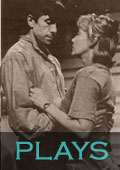First Five Pages of Chapter One
October 29, 1872
2306 Esplanade Avenue
That morning, she couldn’t see him, but she could feel him, smell him, as if he moved inside her bones. His big hands that made her quiver, her skin so soft and moist.
Telle hurried down the shabby hall of the rental house. If only she could have gotten up in the wee hours to greet him. Some say he was here to rest.
Starched petticoats teased her thighs. She was no longer twenty-seven, trapped in a gray/blind world. She was Icarus with wings refashioned to meet the sun.
The grandfather’s clock clanged 6:00 a.m. Unbelievable! Edgar had only been there 4 hours, but he had already left to check out the town.
Why hadn’t she married Edgar instead of his brother? Now when Edgar squeezed her hand, she would be his sister-in-law and cousin, Mrs. René, not Mrs. Edgar Degas as his hushed voice had once insisted.
The front hall closed in around her. Noises of pots and cutlery soared from the kitchen, children fighting to meet Edgar, lamps being turned up, doors unlocked, porches swept against the vagrants, homeless, and robbers who slung, drug-eyed, around every crippled corner in Reconstruction New Orleans. Odors and sweat filled the air, too many family members squeezed inside a box-tomb rental house.
Would she ever get Edgar to herself, feel his breath as he talked; hear his coat rustle as he unbuttoned it over those wide shoulders and long arms that reached out to paint such vibrant pinks, blues, browns on canvases of gold. Oh, to talk to him alone, away from busybody sisters, a demented father, all broken by the War and looking for Edgar come from Paris to right their wrongs.
She bumped into the sideboard, rattling a metal-lined urn with Edgar’s drinking water. Oh God, when they moved furniture, she suffered the worst assaults.
She stepped back and straightened her gown at the waist. A year without deaths meant she could now wear lilac not black. Her tight fitting bodice and the close sleeves hadn’t ripped nor had she stained the apron front of her flounced skirt.
First time Edgar had courted her they had met at a friend’s 19th century chateau. It stood in a park in a secluded part of the Loire Valley. From its elevated position it enjoyed far reaching views of rolling hills and neighboring vines.
He had met her by the central staircase. He was dressed in silk gray trousers, a dark toned jacket of browns and blacks. He was tall. He’d loomed over her as they walked across the parquet floor to warm themselves by the old stone fireplace. His golden brown hair was smooth and full--his shoulders so wide she wanted to rest a cheek against them, bury herself inside his skin.
He took her to the Orangerie:
A grand room with full height ceiling and exposed beams and asked if he might kiss her, and in seconds his tongue was down her throat. She had never experienced that thrill: his thick tongue touching hers. Her mouth burned, there all strung up in her boots and tight dress with her hair loosed, clutching those hard shoulders. Memory of her late husband vanished. No foreplay ever before like this: moist between her legs, breasts hard, nipples big and ripe and wondering if he was coming on himself. Now and then he would pause and ask for water but they didn’t stop—kept kissing—like this was their only chance.
His tongue widened filling her mouth and she wanted him to undo her corset. He asked if he could, she nodded, and his hand undid her bodice, his big hand holding her full in his grasp and then the other breast, and then pulling the bodice down and then-- Oh God, the gong of dinner bells, and time was up and footsteps and good lord, what was she doing with his tongue in her mouth and his hand on her breast, wetness in her bloomers, so ready was she to undo his trousers and for him to come in her.
Indecent yearning threaded her mind, a craving to uncorset her flesh and give herself over to him. He was practiced, so quick his clasp had found hers, his hand her breast. He had removed her bloomers and were it not for the bells, would have taken her six years ago—her resisting then lapping him up like ice water on a July scorcher.
Today as she waited for him a second time, she squinted in the huge, gilt-framed Rococo mirror. Her dark hair, waved from the center, blurred against her pale skin. Her eyes were getting worse. She could no longer tell marble from wood when she looked down at the breakfront; only feel it by the sharp slap of her hand against the surface. Would she need to clutch Edgar’s arm, make him walk slower, guide her along like a baby.
She wobbled suddenly. Was that a loose floorboard under the rug. Stay vigilant! Good lord. The hanging brass candelabra were not turned on, the hall poorly lit. Her hoop skirt fluttered, boot heel stabbing lace bloomers. She barely caught herself on the breakfront.
She would put off seeing the doctor, save the money for some feverish, terrified, sweaty, wide-eyed child. If her family could live, not die, that’s all she could hope for, that and eyes that didn’t fail when she responded to calls from three children.
She walked outside to look for Edgar. Magnolias, bananas, and overgrown vines clawed at the gallery.
Several Yanks on horseback trotted past; stench wafted up from the street. A dead dog had been rotting for days; the garbage boat lay idle at the curb. Several men sat hunched in a blanket by the cross walk.
She shielded her eyes. Poor vision had heightened her senses. When she shook Edgar’s hand would she perspire profusely?
Last night she couldn’t rest next to her husband because of her raw dreams of Edgar and their affair six years ago.
A vegetable vendor drove his cart past: “Beans,” he incanted, “Tomatoes. Okra for sale.”
She remembered the quiet stillness when she had walked down outside, before the War. Now, her heart dragged with each careful look. Something rustled. Was that a rat in the banana tree?
UNPUBLISHED WORK. Contact rosaryo@gmail.com for more information.
|











